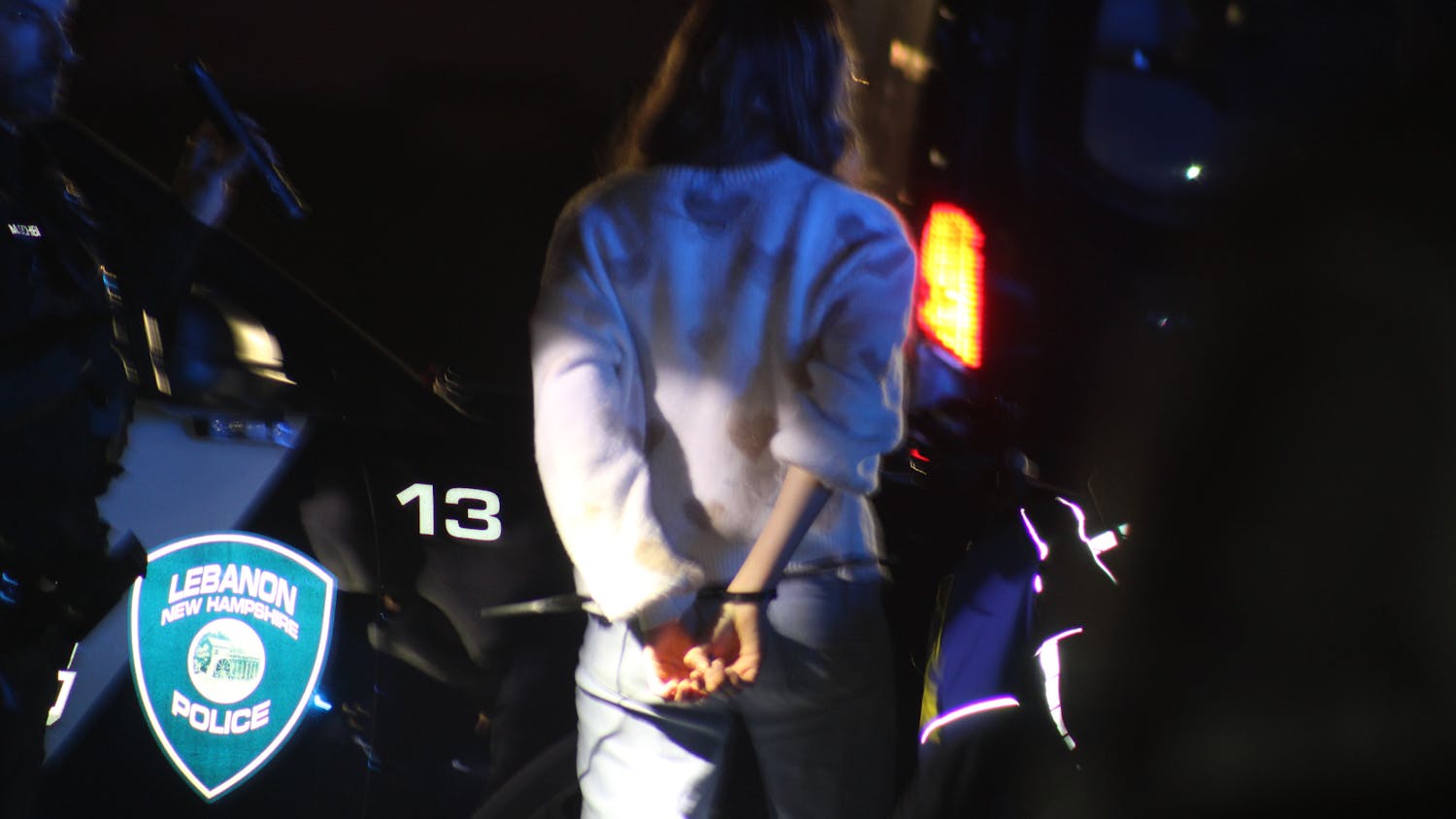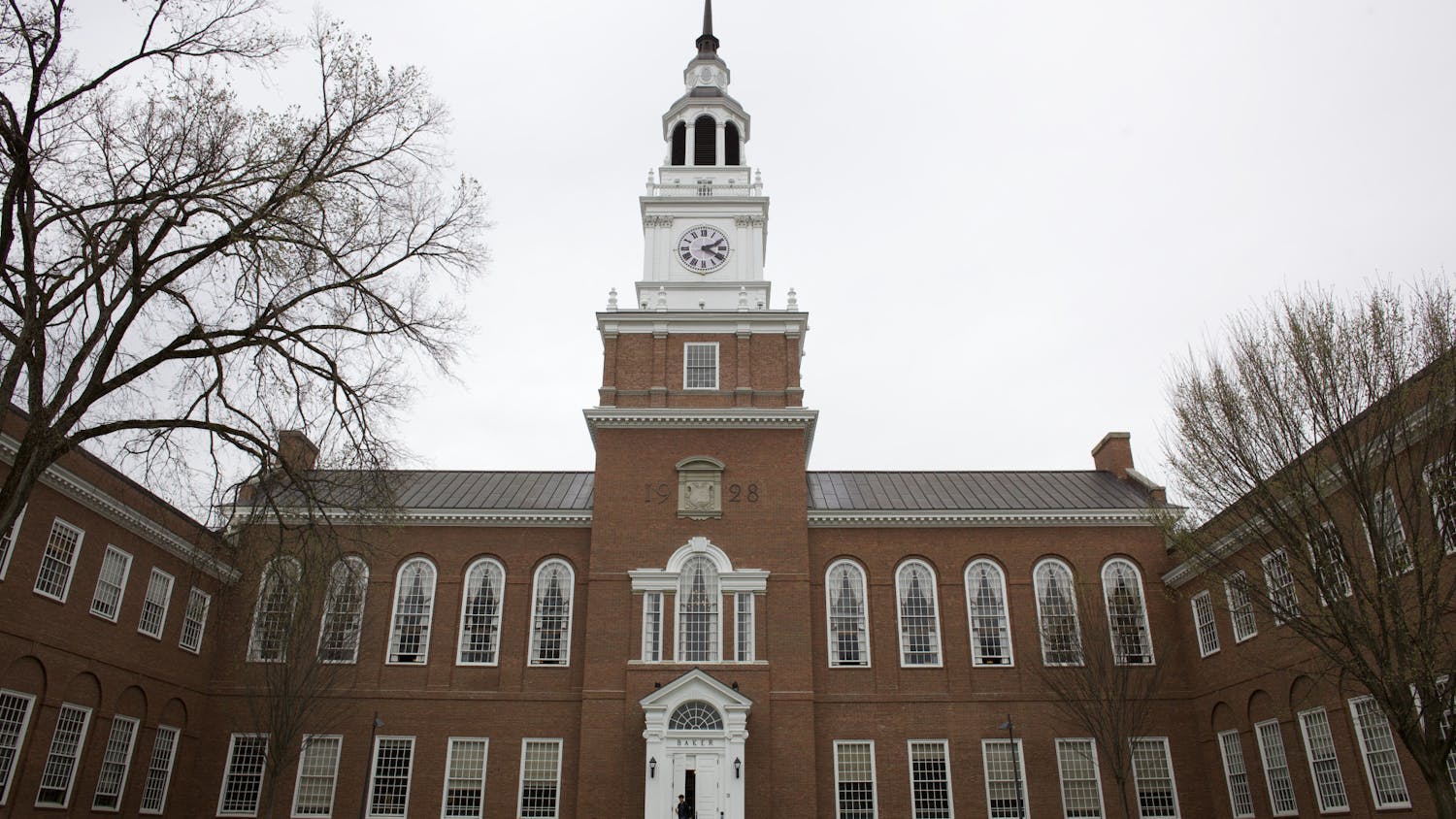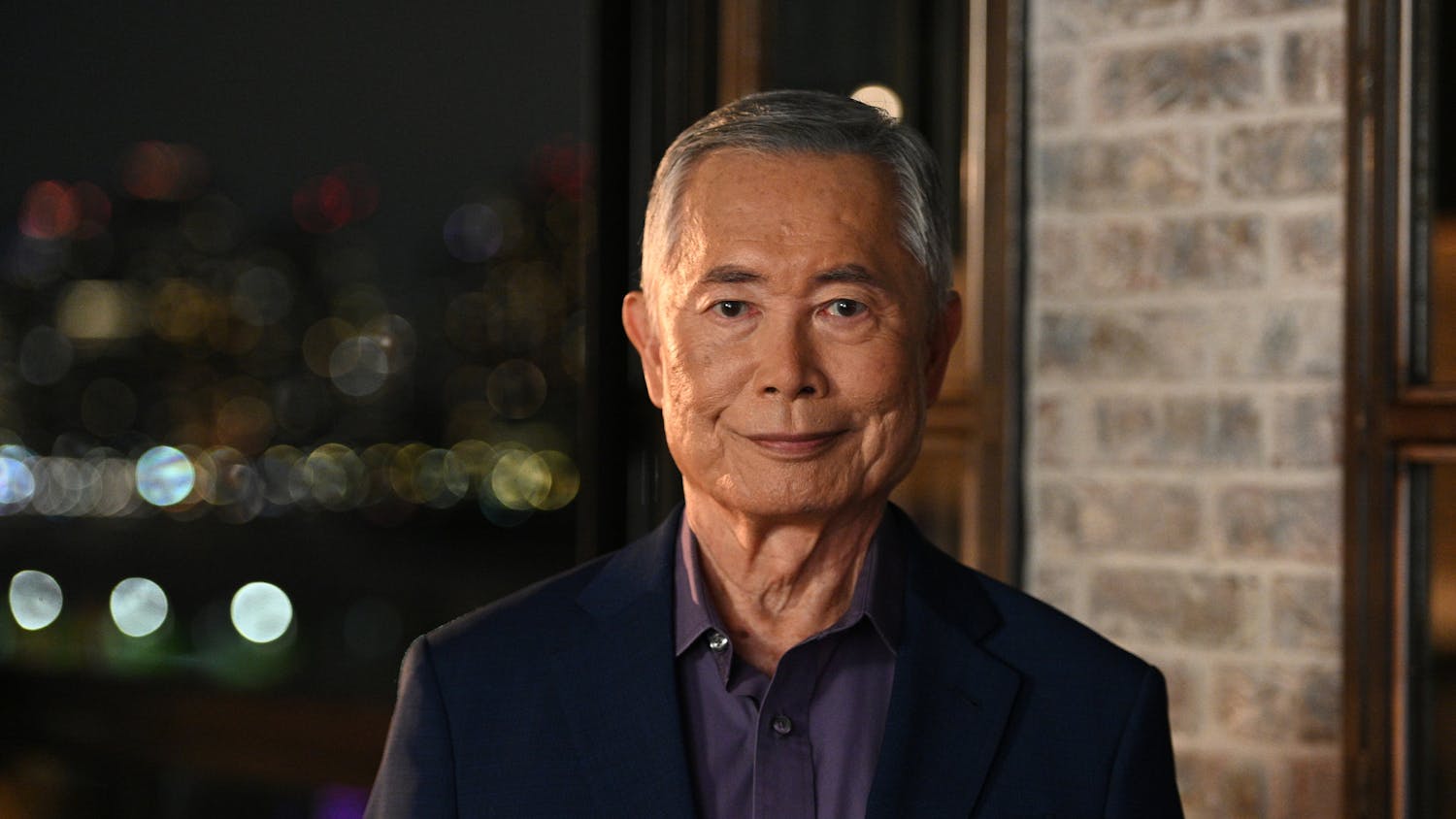Identity, campus racism and Dartmouth’s legacy of slavery were all up for discussion at “Reflections on Race,” a student panel and dinner discussion held Monday night in Dartmouth Hall. The event, organized by Palaeopitus Senior Society and a number of co-sponsoring academic departments and student groups, was attended by over 100 students.
Charlotte Kamai ’16, a Palaeopitus moderator and one of six members who took part in planning the event, described the goal of the night as giving students who do not often have conversations about race and inclusivity a space for dialogue and learning and to allow students who are already engaged with these issues to develop allyship with one another.
“Our hope is that students will be able to connect with some of the stories they hear,” Kamai said. “Or recognize that even if they haven’t noticed these issues present at Dartmouth, they are a very real part of some students’ experiences.”
The event consisted of a panel, which featured six students and lasted about an hour and 20 minutes, followed by small-group, facilitated breakout discussions.
The speakers shared personal experiences dealing with race and racism at Dartmouth and beyond. Some focused on leadership within their communities, while others discussed topics like identity construction and cultural assimilation. Many panelists shared stories of racist incidents they had experienced or witnessed on campus.
A female member of the Class of 2017 on the panel, who requested anonymity due to sensitivity of the subject, reflected on how she attempted to fit into what she called the “Dartmouth mold” during her early years at the College, but has since abandoned that pursuit.
“The mold of the typical Dartmouth student is informed by whiteness, privilege and power,” she said.She added that, given the college’s legacy of enslaving black Americans and its charter mission of evangelizing Native people, Dartmouth was not built for her.
Several panelists discussed last fall’s Black Lives Matter protest, touching on both the events they believed necessitated it and the troubling nature of some campus backlash, which included racist comments and violent threats posted online.
Kevin Bui ’17 recalled being “trashed” on anonymous forums like Yik Yak and called a “race traitor” by other Asian American students for supporting the Black Lives Matter movement by participating in the protest.
Sarah Waltcher ’16, who worked with fellow Palaeopitus members to organize the event, said that planning for the event has been underway since last November, when news of the Black Lives Matter protest dominated campus discourse and national headlines. She noted that the delegation often discussed Dartmouth’s racial climate during the fall term and recognized the urgent need for greater community dialogue following the negative responses directed at student protestors.
“A lot of us in Palaeopitus thought, why is there such a high barrier to listening at Dartmouth?” she said.Throughout winter term, members of Palaeopitus met with individuals, student groups, college-run organizations, faculty and staff to discuss strategies for fostering meaningful and productive dialogue on race, diversity and inclusion. According to Waltcher, they took their time planning the event to avoid the superficiality that can sometimes characterize diversity initiatives.
Sociology professor Janice McCabe, whose department co-sponsored last night’s event, said that the event was a good opportunity to hear directly from a range of students on their experiences. She found the moderated breakout discussions that took place after the panel particularly valuable, given the taboo nature of race as a conversation topic.
“Hopefully students will be able to dig deeper in these discussions and use the opportunity to talk through their own experiences and reflect on what they’ve learned from others,” she said.
McCabe, whose academic focus is in education sociology, noted that a large body of social science research demonstrates that students of color experience different and more significant barriers to achieving success in college, and that some of those barriers are present at Dartmouth. However, she emphasized that the experiences of students of color are diverse and varied.
After the event, Palaeopitus member Tyler Rivera ’16 said that turnout was higher than expected.Catherine Hastings ’17, who attended the event because she wanted to hear others’ perspectives on the campus racial climate, said that the night facilitated valuable dialogue and did a good job of acknowledging its own shortcomings.
The event organizers said at several points that panelists were not “spokespeople” for any particular group of people, and could only speak to their own experiences. They also contextualized the event as one part of a larger movement for inclusivity.
“In no way is this event isolated,” Rivera said. “People have been doing this work on campus for a long time, and we’re smack dab in the middle of some really important conversations.”
Moving forward, the organizers hope that attendees will transfer their reactions to the panel discussion into more meaningful dialogue about race and inclusivity at Dartmouth.
“We don’t want this to be an endpoint for students.” Kamai said. “We want this to be part of previous discussions and future discussions in the making on the topics of race and diversity and inclusivity, because the more dialogue we have about these issues, the more comfortable people are sharing their views and experiences.”



